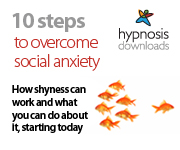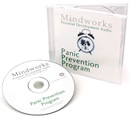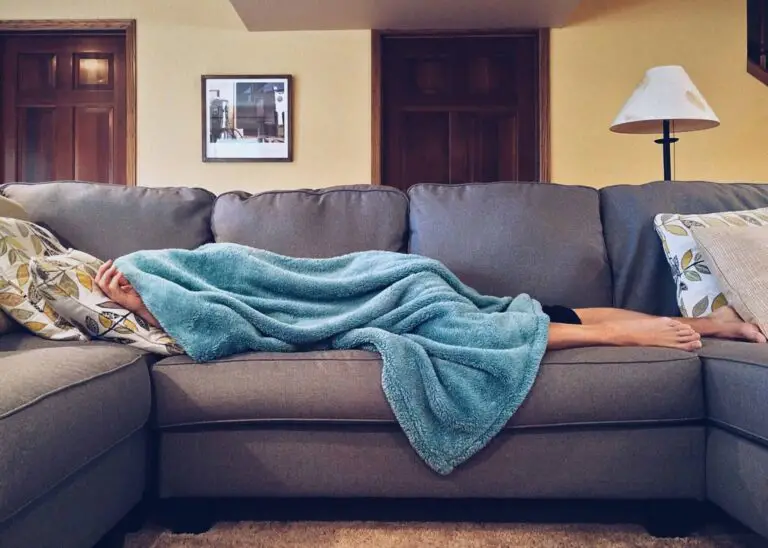Free Online Course: Understanding Anxiety

Welcome To The Anxiety online course
Discover How to Manage your Anxiety to Transform you Life. Learn about this common, yet often overlooked disorder right now.
You don’t have to keep letting your anxiety run your life. In order to have control of something , you first must understand it. And that is what this guide will help you do. Understand this disorder for what it is. And, what it isn’t. Some people don’t even know that they are suffering from this disorder simply because they have never been told what it is. In this course you will :.
- Discover what Anxiety is and what are the main causes
- The 3 most common different types of Anxiety.
- 4 tips to overcome this disorder.
This free anxiety course was designed for the common man, or woman in mind. It isn’t filled with a lot of technical materials that you won’t understand. It’s simple and quickly gets to the heart of the explanations without zapping your already precious time.
Isn’t it time you took control of your life back?. Knowledge is power. Empower yourself today and learn everything you can about this common, yet often overlooked Disorder right now. It could be the best decision you ever make. The choice is yours.
 10 Steps to Overcome Social Anxiety
10 Steps to Overcome Social Anxiety
You might like to consider purchasing the audio program.. In this program you will Discover the 10 Steps to Overcome Social anxiety:
- Overcome Shyness, 2) Overcome Social Phobia, 3) Being Yourself Socially 4) Making Eye Contact, 5) Meeting People, 6) Conversation Starter 7) Master Small Talk, 8) Express Your Opinion, 9) Speaking in Groups, 10) I’m OK, You’re OK. You can read about it here.
Part I: Who Suffers From Anxiety?
Anxiety is believed to be an inherited disorder, although your parents may not show the outward symptoms of it. Remember, this is a disorder that makes anyone to believe they are going crazy. However, not every person who has experienced an Anxiety attack will develop a full disorder, but don’t discount the fact that potentially they could.
According to the National Institute of Mental Health Anxiety Disorders affect about 40 million American adults age 18 years and older (about 18%) in a given year. [1] That’s 40 Million! And, it is twice as common in women as it is in men.
Coincidentally, the major reason for people that they are suffering from Anxiety or Panic Disorder COULD be attributed to the fact that many cases reported began in adolescence.
The key here is to listen to your children!!. You would not want them to endure a childhood full of suffering and not even know the reason for it.
Another interesting fact to be aware of is that Anxiety attacks happen while sleeping. Anxiety attacks that take place while sleeping, also called nocturnal panic attacks, occur less often than panic attacks during the daytime but affect about 40%-70% of those who suffer from daytime panic attacks. This symptom is also important because people who suffer from nocturnal panic attacks tend to have more respiratory distress associated with their panic.
They also tend to experience more symptoms of depression and other psychiatric disorders compared to people who do not have panic attacks at night. Nocturnal panic attacks tend to cause sufferers to wake suddenly from sleep in a state of sudden fear or dread for no apparent reason.[2].
Anxiety is a disorder in which the individual afflicted feels an intense, irrational fear and an impending sense of doom or dread. What this means is that if you suffer from Anxiety Disorder you will be confronted with paralyzing fear for no apparent reason that will make you feel as if there is no possible way out of it. And you can experience this unprovoked fear at any time within the course of a day.
In addition to suffering from Anxiety Disorder, an individual may also have other common disorders that go hand-in-hand with it such as Depression, Obsessive-Compulsive Disorder, Agoraphobia, or any other number of Phobias that make it all the more important to seek treatment for.
What Causes Anxiety?
The greatest determiner of having an Anxiety attack is your MIND. Even though you can tell someone that is having an Anxiety attack that “It’s All In Your Mind”, this usually comes out leaving them feel you are trying to be condescending to their plight. Even though you don’t mean it in that way, this is most likely the way it is received.
Why Anxiety is all in your mind?. Because the BRAIN is where all your Anxiety stems from. Many studies have focused mainly on two specific portions of the brain that are responsible for inducing feelings of fear and anxiety. It is simply an unannounced trigger that sets off one’s “fight or flight” defense mechanism, kicks in the adrenaline, and BAM! A full blown Anxiety attack is on it’s way forward.
Many times, Anxiety is brought about due to increased stress from daily life. Bills piling up, children out of control, pressure from work, family matters, and other events can trigger this disorder .
Replace now the paralyzing thoughts and emotional habits you’ve developed over a lifetime with the same positive feelings and thought processes of the most socially skilled people among us.
Part II: What Are The Different Types Of Anxiety?
There are three types of anxiety
1) Anxiety/Panic Disorder
This is the form of the disorder that brings on sudden attacks that paralyze you with fear for no apparent reason. Of course there are absolutely underlying factors that cause these attacks, however, the sufferer rarely knows what those are.
The most common symptoms are:
- Difficulty breathing.
- Pounding heart or chest pain.
- Intense feeling of terror.
- Sensation of choking or smothering.
- Dizziness or feeling faint.
- Trembling or shaking.
- Sweating
- Nausea or stomachache.
- Tingling or numbness in the fingers and toes.
- Chills or hot flashes.
- A fear that you are losing control or are about to die.[3]
People that suffer from this disorder may honestly feel as if they are dying, having a heart attack, or losing their minds. These attacks can occur at any time, and even while the sufferer is asleep.
Anxiety/Panic Disorder is often connected with other serious disorders such as depression. Due to the fact that the attacks associated with this disorder are such terrifying events, the sufferer may make several trips to the local emergency room not really knowing the true cause as it may be difficult to get a correct diagnosis at first.
This disorder can be very debilitating to the sufferer and can extremely hinder their daily activities. However, this form of disorder is the most treatable of all the Anxiety Disorders, and so an individual experiencing symptoms of this disorder should seek help and treatment through their health care professional.
2) Social Anxiety Disorder
This type of disorder more commonly strikes when a sufferer is placed within a social setting. It is also referred as Social Phobia and can be a very traumatic and debilitating disorder making it near impossible for one afflicted with it to be comfortable at any social gathering. This includes everyday functions such as attending class, going out to dinner , or even going to work.
The person suffering from this disorder has strong self-conscious issues and may often times feel as if they are not welcome, or really a part of the social setting. They feel as if they are constantly being judged or watched by others for no apparent reason other than those things they themselves feel self-conscious about.
Often times, the sufferer will experience any of the following symptoms when placed in social gatherings:
- Intense fear of being in situations in which you don’t know people
- Fear of situations in which you may be judged
- Worrying about embarrassing or humiliating yourself
- Fear that others will notice that you look anxious
- Anxiety that disrupts your daily routine, work, school or other activities
- Avoiding doing things or speaking to people out of fear of embarrassment
- Avoiding situations where you might be the center of attention
- Blushing
- Profuse sweating
- Trembling or shaking
- Nausea, stomach upset
- Difficulty talking, shaky voice
- Muscle tension
- Confusion
- Palpitations
- Diarrhea
- Cold, clammy hands
- Difficulty making eye contact [4]
A person suffering from Social Anxiety disorder can become so upset by an upcoming social event that it will plague them for weeks in advance working them into an anxious frenzy by the time the event finally comes around. In an attempt to feel better, a person will often times turn to alcohol or drugs to cope with it. This disorder usually happens sometime during early childhood or adolescence and continues on throughout adulthood. Treatment for this disorder can be accomplished through careful and consistent counseling and medication.
Panic Attacks Program CD or tape. Stop panic attacks with this unique program.
3) General Anxiety Disorder
This disorder is a sense of anxiety or worry experienced on a daily basis. It is a chronic disorder that is continuous throughout the sufferers day. They experience difficulty concentrating or constant, excessive worry about every day concerns with an inability to control those overwhelming feelings of worry.
Symptoms can also include:
- Excessive, ongoing worry and tension
- An unrealistic view of problems
- Restlessness or a feeling of being “edgy”
- Irritability
- Muscle tension
- Headaches
- Sweating
- Difficulty concentrating
- Nausea
- The need to go to the bathroom frequently
- Tiredness
- Trouble falling or staying asleep
- Trembling
- Being easily startled [5]
While not as extreme a condition such as Anxiety/Panic Disorder, it is still a serious disorder that requires professional treatment from a qualified health care provider
 10 Steps to Overcome Social Anxiety
10 Steps to Overcome Social Anxiety
Part III: What Can You Do To Battle Back?
1. What Can You Do To Support Someone Suffering From An Anxiety Disorder?
2. Where To Get Help For Your Anxiety?
3. Conclusion
Panic Attacks Program CD or tape
Stop panic attacks with this unique program.
First you MUST realize this Anxiety attack for what it is when you are having one. Understand that you ARE HAVING AN ANXIETY ATTACK, and that it won’t last forever. Most attacks only last anywhere from a few minutes up to no longer than a half an hour.
Here are some suggestions:
- Try to lay down and RELAX. If you can’t lay down, sit still, close your eyes and focus on slow, even, breathing. This will help ease the symptoms.
- Redirect your train of thought. Keep yourself as busy as you can and let the thoughts of fear of an oncoming attack melt away. They will. And the more you practice this reversal of thought, the better you will get at it and be able to manage your Anxiety attack better the next time you feel one coming on.
- Ask for help. Don’t feel bad for having to call emergency.
What Can You Do To Support Someone Suffering From An Anxiety Disorder?
This section is of importance to those trying to help another person who is experiencing, or dealing with, Anxiety on a daily basis. How you provide support to them may help them to control their Anxiety to some degree.
NEVER belittle or try to downplay someone’s Anxiety Disorder. This is a REAL disorder and should be respected as such. Don’t just dismiss their episode as a one time event, or try and ‘solve’ their problem through rationalization.You have to understand that when a person is actually going through an Anxiety attack rationality is not something they are concentrating on.
This is an extremely frightening experience and no matter how much you’d want to, you CANNOT MAKE THIS EXPERIENCE GO AWAY. Only the individual who is HAVING the attack has the power to do this. Not YOU. The absolute WORST thing you can do is to act as if they are LYING or ACTING to get attention. This is simply not the case. While you may BELIEVE this to be true because you have never yourself experienced the unrelenting terror of an Anxiety attack, that doesn’t mean that it isn’t happening to someone you care about.
Do not ignore the Anxiety attack, buy doing so you are probably contributing to another disorder that goes hand in hand with Anxiety. . .Depression. Just BE there for them. Let them know that while you may not understand what they are going through, you are there for them and will stay until they feel better. Do NOT try and force someone out of an Anxiety attack. It could make the attack that much worse for them. Just let the attack happen naturally, and in most, if not all, cases, their bodies will help them come out of the ‘hot’ zone all on it’s own. And if it doesn’t, get them to the nearest emergency room as soon as you can. Or call an emergency squad to take them.
NEVER try and give someone suffering from an Anxiety attack any type of prescription drugs that have not been prescribed by their family physician.
Where To Get Help For Your Anxiety?
Yo can begin by trying to overcome anxiety on your own. There are excellent programs you can use to help you not only to overcome anxiety but also to understand more about it. Here are some suggestions:
-
- Use Hypnosis. Hypnosis can be one of the quickest and lasting treatments to overcome anxiety disorders. Here are some hypnosis sessions that you can download right now: Ease Anxiety ,Crowd Anxiety?, Sexual Performance Anxiety or Overcome Social Anxiety.
ConclusionIf you suffer from Anxiety, I commend you for making a choice to learn more about what it is, what you can expect, some steps you can take to get your Anxiety under control, and last but not least, finding someone that can understand what you are going through and know that you are not alone in your fight. You can get help and you should under no circumstances feel embarrassed, or any other judgmental thing about yourself for doing so.
You are a person with feelings that happens to suffer from a disorder that deserves the right to be happy and comfortable with your life.! Whether you are someone battling with Anxiety or someone who loves a person fighting this battle, I wish you all the best life can give to you. You are a wonderful person for taking steps to educate yourself on this serious disorder.
If you have not done so yet, please consider having a look at Cure Social Anxiety Course. Many people have found it extremely helpful.
Learn more with the Anxiety books.
Thank you for sharing your experience with The Free Anxiety Course. Please click here to leave your experience or insights!. Help other people with your feedback.
Thank you so much for your time, I truly appreciate it!.







